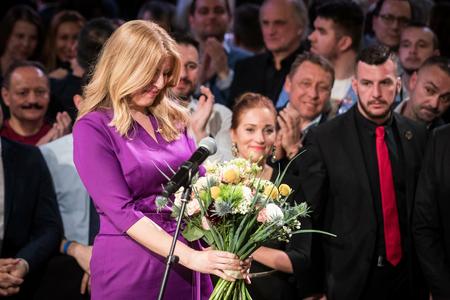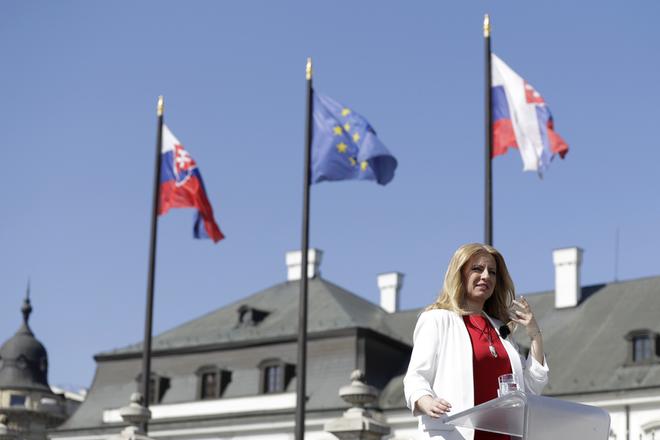In this story, you can read about:
Čaputová was not the first female candidate in a Slovak presidential election
What is the theory of “glass cliff”?
How she can influence discussion on gender equality in Slovak society
Why we should not only “count” how many women are in politics
President-elect Zuzana Čaputová gained 1,056,582 votes in the recent presidential election and became not only the first Slovak female president but also the first female president among the countries of central Europe.
Observers warn about jumping to quick conclusions about how progressive Slovak society is in terms of gender equality. Still, electing a woman to the highest constitutional post in the country is definitely a breaking point.
“It is a historic novelty and proof that being a woman is not a barrier for Slovak voters, when a candidate presents a high-quality and convincing offer,” sociologist Zora Bútorová, from the Institute for Public Affairs non-governmental think tank, told The Slovak Spectator.
The woman
It is an important message for a country where part of the public maintained the opinion that it is not possible for a woman to be elected in Slovakia, Bútorová added.

Zuzana Maďarová, from the feminist civic association Aspekt, noted that even though the election of Čaputová is symbolic, one should keep in mind that Slovaks did not elect “a woman” to the presidential post, but a specific candidate. She has a background in law and in the third sector, a woman who openly talks about her liberal attitudes, her view of how insulting and equivocal is the political communication in Slovakia. At the symbolic level, she smashes stereotypes about politics being a masculine environment.



 Zuzana Čaputová in front of the Presidential Palace (source: AP/TASR)
Zuzana Čaputová in front of the Presidential Palace (source: AP/TASR)